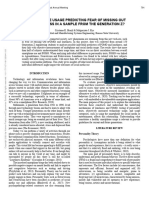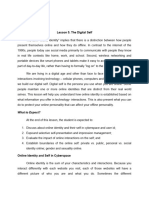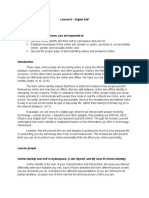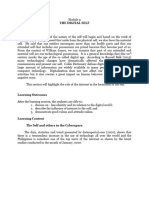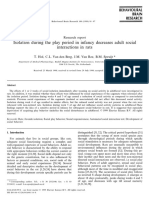0% found this document useful (0 votes)
18 views12 pagesNew Speech
The document discusses the paradox of technology making people feel more connected yet more alone, highlighting research that suggests smartphones and social media can reduce face-to-face interactions and increase feelings of loneliness. While some argue that technology facilitates social connections, others point out that it can lead to social awkwardness and a lack of real-life relationships. The text includes various student opinions and research findings that illustrate the complex relationship between technology use and social behavior.
Uploaded by
Azhar SajjadCopyright
© © All Rights Reserved
We take content rights seriously. If you suspect this is your content, claim it here.
Available Formats
Download as DOCX, PDF, TXT or read online on Scribd
0% found this document useful (0 votes)
18 views12 pagesNew Speech
The document discusses the paradox of technology making people feel more connected yet more alone, highlighting research that suggests smartphones and social media can reduce face-to-face interactions and increase feelings of loneliness. While some argue that technology facilitates social connections, others point out that it can lead to social awkwardness and a lack of real-life relationships. The text includes various student opinions and research findings that illustrate the complex relationship between technology use and social behavior.
Uploaded by
Azhar SajjadCopyright
© © All Rights Reserved
We take content rights seriously. If you suspect this is your content, claim it here.
Available Formats
Download as DOCX, PDF, TXT or read online on Scribd
/ 12




